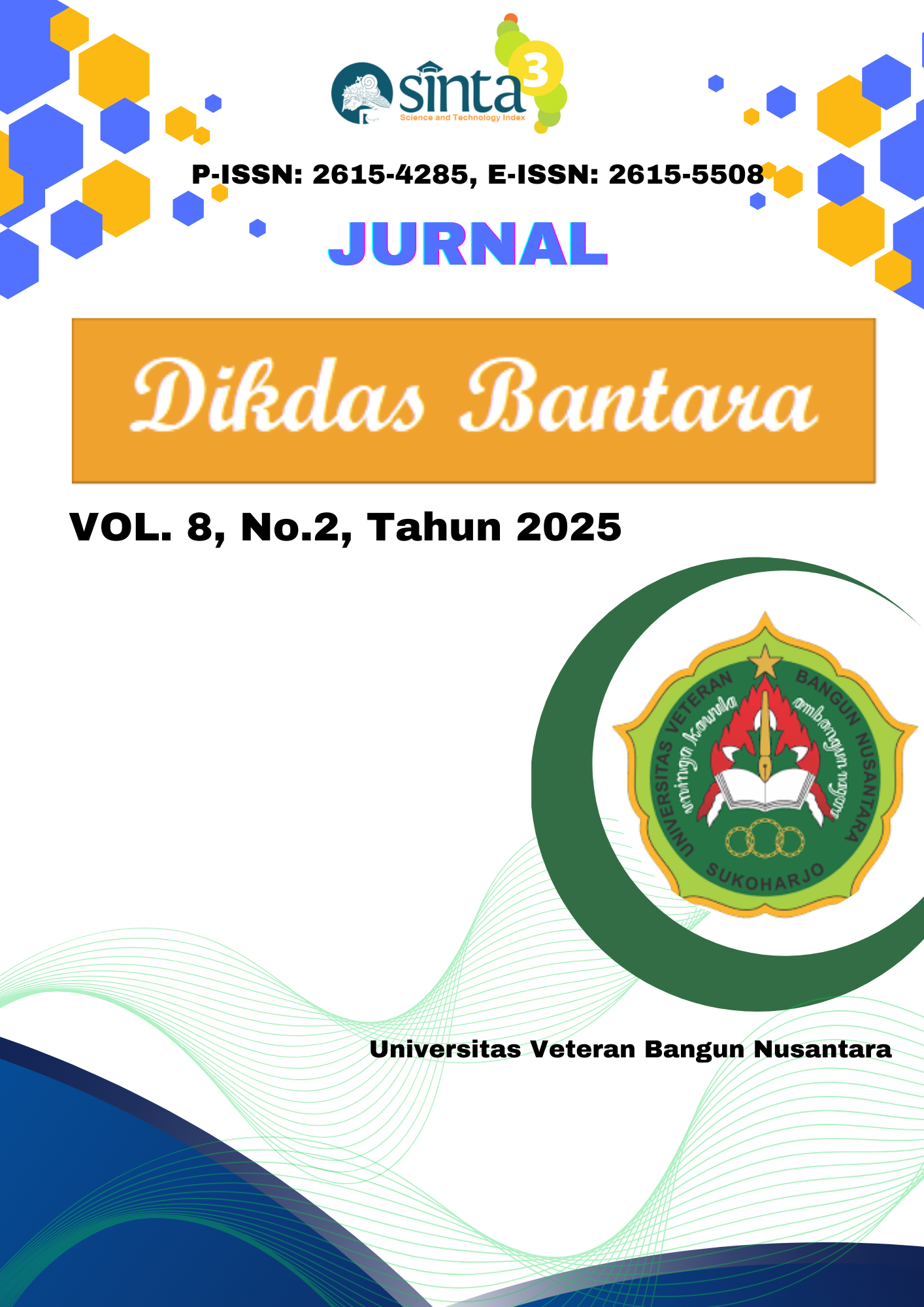Kurikulum Pendidikan Ibnu Sina tentang Perkembangan Dasar Anak: Sebuah Studi Relevansi Kontemporer
DOI:
https://doi.org/10.32585/dikdasbantara.v8i2.6916Abstrak
ABSTRAK
Studi ini menyelidiki relevansi abadi konsep kurikulum pendidikan anak Ibnu Sina pada abad ke-11 dalam praktik pedagogis kontemporer. Latar Belakang: Ketika sistem pendidikan modern bergulat dengan keseimbangan perkembangan kognitif dan karakter, pendekatan holistik Ibnu Sina dari Zaman Keemasan Islam menawarkan wawasan berharga yang masih kurang dipelajari dalam literatur saat ini. Tujuan: Penelitian ini mengkaji tiga tujuan utama: (1) menganalisis kerangka pendidikan Ibnu Sina untuk anak-anak, (2) mengevaluasi keselarasannya dengan teori perkembangan modern, dan (3) mengidentifikasi strategi implementasi untuk ruang kelas Indonesia. Metode: Tinjauan sistematis kualitatif dilakukan, menganalisis sumber-sumber primer (teks asli Ibnu Sina) dan 35 sumber sekunder (artikel peer-review 2018-2023) melalui pengkodean tematik. Hasil: Temuan penelitian mengungkap empat relevansi yang terus-menerus: (a) kurikulum berbasis tahap perkembangan yang mencerminkan pendekatan konstruktivis modern, (b) pengembangan moral-intelektual-fisik terintegrasi yang mengantisipasi prinsip-prinsip heutagogi, (c) metode pengajaran non-punitif yang selaras dengan pendidikan yang berwawasan trauma, dan (d) standar kompetensi guru yang menyerupai kerangka Guru Penggerak Indonesia. Kesimpulan: Filsafat Ibnu Sina memberikan model yang layak untuk mengatasi kesenjangan pendidikan kontemporer, khususnya dalam pendidikan karakter dan pembelajaran yang dibedakan. Kontribusi: Penelitian ini menawarkan tiga inovasi praktis: (1) matriks lintas jalur yang menghubungkan pedagogi Islam klasik dengan keterampilan abad ke-21, (2) rekomendasi berbasis bukti untuk reformasi Kurikulum Merdeka Indonesia, dan (3) kerangka teoritis untuk pedagogi yang responsif secara budaya dalam konteks mayoritas Muslim.
Kata kunci: Pedagogi Islam, perkembangan anak, desain kurikulum, filsafat pendidikan
Unduhan
Unduhan
Diterbitkan
Terbitan
Bagian
Lisensi
Hak Cipta (c) 2025 Rusmini, Yusup Rohmadi, Syamsul Bakri

Artikel ini berlisensiCreative Commons Attribution-ShareAlike 4.0 International License.
The copyright to this article is transferred to Jurnal DIKDAS BANTARA if and when the article is accepted for publication under Creative Commons Attribution-ShareAlike 4.0 International License. The undersigned hereby transfers any and all rights in and to the paper including without limitation all copyrights to Jurnal Komunikasi Pendidikan. The undersigned hereby represents and warrants that the paper is original and that he/she is the author of the paper, except for material that is clearly identified as to its original source, with permission notices from the copyright owners where required. The undersigned represents that he/she has the power and authority to make and execute this assignment.
We declare that:
1. This paper has not been published in the same form elsewhere.
2. It will not be submitted anywhere else for publication prior to acceptance/rejection by this Journal.
3. A copyright permission is obtained for materials published elsewhere and which require this permission for reproduction.
Furthermore, I/We hereby transfer the unlimited rights of publication of the above mentioned paper in whole to Jurnal Komunikasi Pendidikan. The copyright transfer covers the right to reproduce and distribute the article, including reprints, translations, photographic reproductions, microform, electronic form (offline, online) or any other reproductions of similar nature. The corresponding author signs for and accepts responsibility for releasing this material on behalf of any and all co-authors. After submission of this agreement signed by the corresponding author, changes of authorship or in the order of the authors listed will not be accepted.
Retained Rights/Terms and Conditions
1. Authors retain all proprietary rights in any process, procedure, or article of manufacture described in the work.
2. Authors may reproduce or authorize others to reproduce the work or derivative works for the author’s personal use or for company use, provided that the source and the Jurnal Komunikasi Pendidikan copyright notice are indicated, the copies are not used in any way that implies Jurnal Komunikasi Pendidikan endorsement of a product or service of any employer, and the copies themselves are not offered for sale.
3. Although authors are permitted to re-use all or portions of the work in other works, this does not include granting third-party requests for reprinting, republishing, or other types of re-use.












